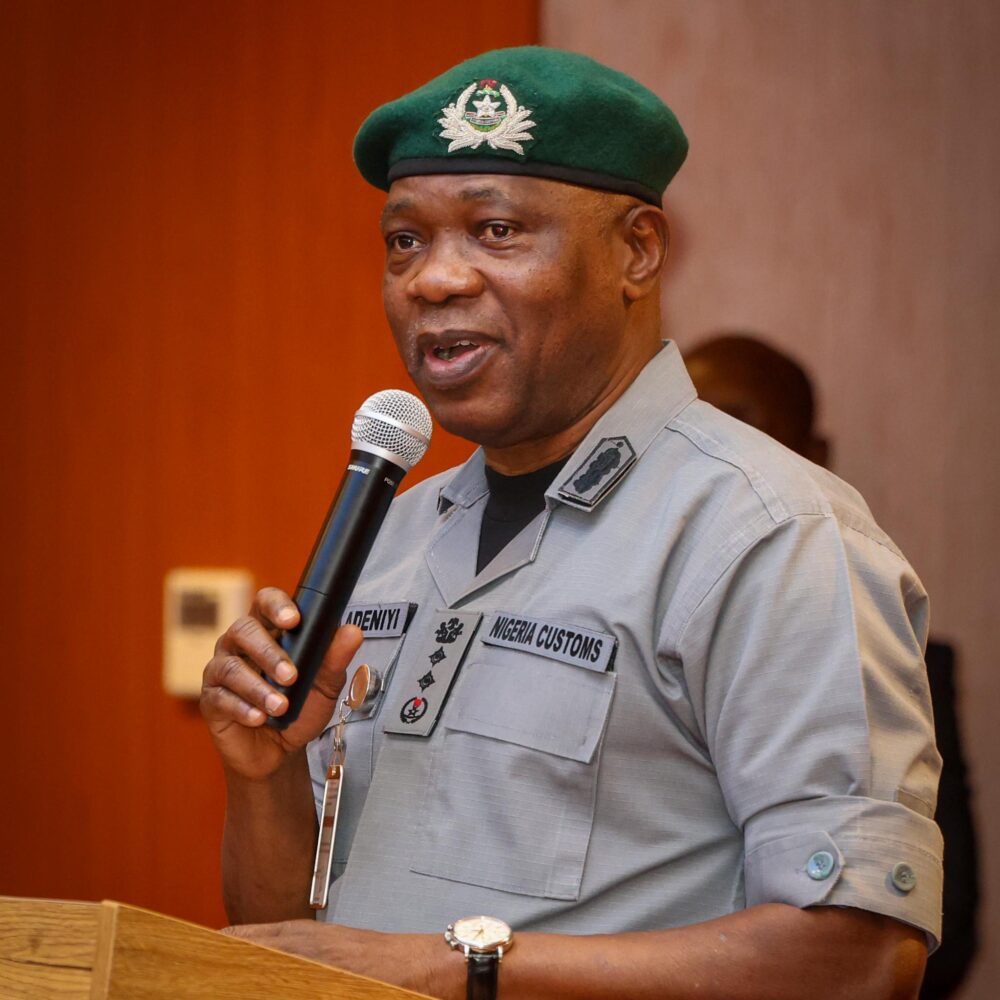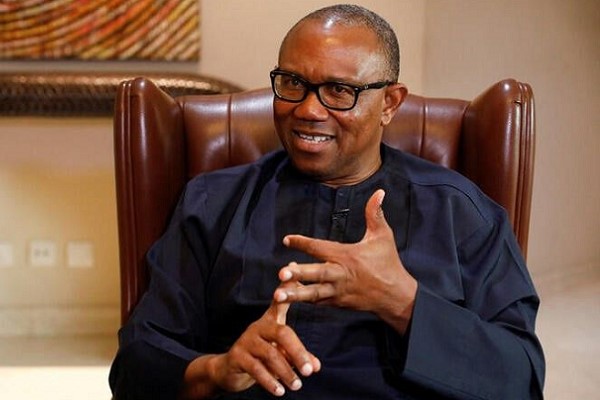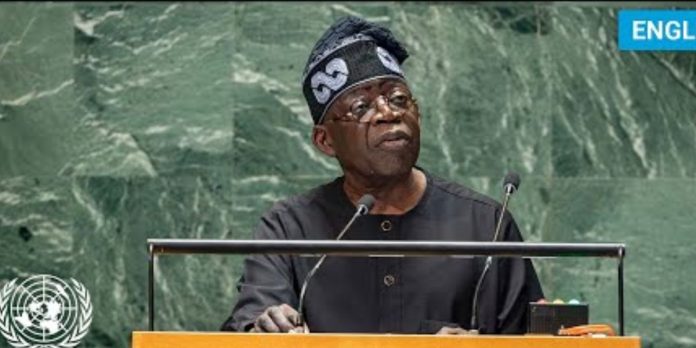While Nigeria’s late dictator, Sani Abacha, relentlessly plundered public wealth, other senior military officers, one of them now a serving minister, were also, helping themselves with huge sums of money from the country’s treasury, an official report has shown.
According to the report, the generals used the international banking system to launder their loots in a manner that has all the resemblance of an organised crime syndicate.
The funds were proceeds of illegal oil lifting approved by Mr Abacha, a notorious kleptocrat listed alongside Indonesia’s Suharto and Mobutu Seko of Zaire (now DR Congo) among the worst state official thieves in the world by Transparency International. It is estimated that Mr Abacha stole between three billion and five billion dollars, most from Nigeria’s oil wealth.
Siphoning off proceeds of natural resources is a common feature of kleptocrats. In Nigeria’s case under Mr Abacha, the junta chalked out a pattern of arbitrarily allowing officials to lift crude oil and retire the proceeds abroad using secret accounts.
An Obasanjo era report from the office of the then National Security Adviser, Abdullahi Mukhtar, documented how Bashir Magashi, a retired major general and now defence minister; late Patrick Aziza, retired major general, and Oladipupo Diya, retired lieutenant general, admitted to having benefitted from criminal proceeds as members of the Provisional Ruling Council led by Mr Abacha.
Taking the lid off
For the Obasanjo administration in 1999, a key objective – as Nigeria embarked on reforms, including setting up agencies, to fight corruption – was to track and recover the country’s stolen money stashed abroad by the Abacha junta.
To that end, Mr Obasanjo hired Swiss lawyer, Enrico Monfrini, who, as our investigations show, helped uncover secret (nominee) accounts for Mr Magashi, Mr Diya – who was next to Mr Abacha before being locked up for alleged coup plot – and Mr Aziza at the British dependency of Jessey branch of Bank PNP Paribus
Sources with direct knowledge of the matter said Mr Obasanjo directed his NSA, Mr Mukhtar, to go after the three retired generals and compel them to surrender the stolen funds.
“Maj Gen Aziza has a nominee account (NAP Nominee Account) with bank BNP Paribas, Jersey branch, UK, which received a total deposit of USD .$.2,235,985.,00. DM 3,150,00 and EURO 1,960,000.00,” Mr Mukhtar stated in the report (NSA/A/225/1/C of October 26, 2006) to Mr Obasanjo. “The source of the money was largely from proceeds of oil lifting he benefited as a member of the PRC under Late Gen Abacha.”
Mr Mukhtar further said that the Jersey authorities acting in collaboration with Nigeria placed a ban on the account in 2001, and that as at December, 2005 the balance in the account stood at USD $118,996.04, and EURO 518,536.15.
Obasanjo’s “magnanimity”
Mr Mukhtar’s report stated that Mr Obasanjo endorsed the pleas of the indicted officials to keep some parts of their loots.
“The president out of magnanimity directed that the Gen Aziza forfeits only the balance to FGN,” reported Mr Mukhtar, adding that he communicated this to Mr Aziza, and “he pleaded that some of the money be left for him contrary to Mr President’s directive.”
Former president Olusegun Obasanjo.
In the case of Mr Diya, a UK trustee company, Coutts (Guemsey) Ltd, invested about 600,000 British pounds, being proceeds of illegal oil lifting, on his behalf with BNP Paribas, Jersey.
The Jersey authorities later froze the account as laundered money suspected to be proceeds of corruption but Coutts smartly moved the money away from Jersey and by the time Mr Obasanjo instructed that the money be confiscated, it had “gone out of jurisdiction of Jersey Authorities.”
Mr Diya had reportedly earlier lied to the NSA that the money was from his family business. But after his claim was rejected, he “explained that 50% of it has been spent and the balance of 50% was invested in Tokyo Japan.”
Just as he did to Mr Aziza, Mr Obasanjo also “magnanimously agreed” that Mr Diya should return the 50 per cent which amounted to 300,000 British pounds but Mr Mukhtar reported that “Gen Diya however pleaded that the investment in Tokyo was not with his consent and the matter was before the police in UK, and he thus needed time to recover the money.”
“He has not paid to Government the £300,000.00 since-then (January 2006).”
“Arrest and recover”
After Mr Obasanjo “magnanimously” directed that only the balance of Mr Aziza’s laundered money be forfeited, he “contemptuously” refused to honour invitations to complete the forfeiture process, the former NSA reported to Mr Obasanjo.
In response, the former president remarked to the former NSA: “Gen. Aziza should be arrested by the EFCC and the money be recovered.”
Mr Aziza was among the officers that cooperated with Mr Abacha to effect the November 1993 palace coup that ended the Interim National Government of Ernest Shonekan. As a top Abacha man, he chaired the tribunal that convicted Mr Obasanjo and late Shehu Yar’Adua, among others, for involvement in a 1995 coup plot, widely believed to be phantom.
Late Patrick Aziza, retired major general
Like Mr Obasanjo and Mr Yar’Adua, Mr Diya was also convicted for coup plot, also believed to be phantom. Apart from Mr Yar’Adua who died in prison in December 1997, others only regained freedom after the passing of Mr Abacha in June 1998.
Barely different from the order on Mr Aziza, Mr Obasanjo also directed that “without fail before December 31, 2006,” Mr Diya’s loot should also be recovered.
Unlike Mr Diya and Mr Aziza, the current defence minister, Mr Magashi, who also benefitted from Nigeria’s oil wealth, complied with the term of his negotiation with the government. Out of a sum of his $550,000, being proceeds of illegal oil lifting, he returned $400,000 as he did not want to be publicly humiliated and was allowed to keep the $150,000 balance, the report indicated.
President Muhammadu Buhari [Photo: Presidency]
But despite the indictment, many years after, President Muhammadu Buhari, whose anti-corruption vows many now see as a ruse, appointed Mr Magashi to head the country’s big-budget defence ministry. Mr Buhari is yet to act since PREMIUM TIMES reported Mr Magashi’s abuse of office.
Like Mr Magashi, an Abacha bagman, Atiku Bagudu, who helped the late dictator launder huge sums across international borders, is also a top political leader in Nigeria, now serving a second term as Governor of Kebbi State.
With the illicit cash flow, the local populations in the Niger Delta, where the oil was lifted, have remained impoverished as the water and land they depend on for livelihoods became degraded due to oil industry activity.
Nothing after all
The report indicting Messrs Aziza, Magashi and Diya was dispatched at the end of October 2006, just months before Mr Obasanjo’s tenure ended in 2007.
PREMIUM TIMES obtained another memo, dated November 1, 2006, from Mr Obasanjo’s office directing the former NSA to act on the presidential directives.
“But that’s where it all ended,” an aide to Mr Obasanjo, who also then worked in the State House, said. “It was towards the end of the administration and there was nothing done.”
The moves to recover the stolen funds linked to the Abacha junta started just after Mr Obasanjo got to the office in 1999. In April 2002, the Abacha family returned $1 billion to Nigeria in a deal which involved the Swiss Federal Office of Justice. The deal allowed the family to keep $100 million and required the government to drop “some criminal charges” against Mohammed, Mr Abacha’s son, New York Times then reported.
In 2006, another $723 million Abacha loot was returned to Nigeria from Switzerland but the use of the recovery was largely unaccounted, Transparency International said.
Bashir Magashi
“That past experience led Switzerland to controversially attach conditions to the repatriation of this batch of Abacha loot (US$322 million in 2018), including third party oversight – meaning that the World Bank will now monitor the distribution of the funds,” reported Transparency International.
Nigeria has also recovered other tranches of Abacha loot, including the latest, US$308 million, laundered by Kebbi governor, Mr Bagudu, from Jersey.
But the dictator’s men such as Mr Magashi and Mr Diya have remained free to use the proceeds of the illegal oil business.
Mr Aziza died in August 2014 without returning the illicit fund he had held.
Mr Magashi has refused to respond to repeated enquiries by PREMIUM TIMES. He has not replied calls and text messages sent to him on the matter.
Mr Diya’s known telephone number did not go through at the time of this report.
Premium Time





